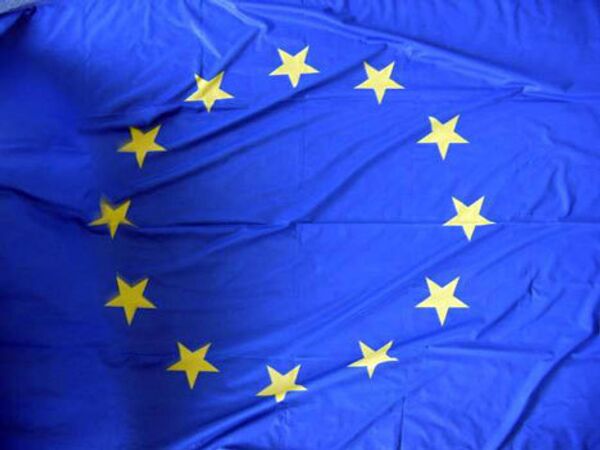MOSCOW. (RIA Novosti political commentator Andrei Fedyashin) - The European Union has at long last received a new birth certificate - the Lisbon Treaty on its reform has been approved by the 27 member states.
The biggest problem was Ireland, which held two referendums on the issue. The first referendum, last year, blackballed the treaty, but the referendum on October 2 approved it by a majority of 67% of voters against 33%. The Irish took a positive decision after receiving detailed explanations of the benefits the treaty offers and the losses they will sustain if they reject it.
The reform became a life-or-death matter in 2004-2007, when the number of the EU members increased from 15 to 27. The new member states, most of them former communist countries, added to the EU elements of dissatisfaction with their former "parent state" - the Soviet Union/Russia, a desire to get a taste of European prosperity, many people seeking jobs, poor understanding of life in the western parts of the EU, and the arrogant belief that they can freely use their newly acquired ability to vote for or block any internal EU decisions.
Since all the crucial decisions are taken by consensus in Brussels, Old Europe - first of all France and Germany, but also Italy and Spain - soon saw that they are no longer regarded as the old-timers who have a right to be "more equal than the others" simply because they were the first to come.
Indeed, it is absurd that a country with a population of 4 million people can block any decision in a community whose aggregate population exceeds 500 million people. That drawback of the European bureaucracy had to be remedied, and this has been done very elegantly.
The Lisbon Treaty stipulates a new "double majority" voting system that rebalances voting weights to bring them closer to population size.
Under this system, to pass a decision by a qualified majority normally requires the double hurdle of at least 55% of member states while representing at least 65% of the population of the EU.
This will prevent the arrogant Eastern European countries from vetoing the decisions they dislike.
The treaty also lays down a two-and-a-half-year term for a full-time president of the European Council, the body that represents member nations.
The trouble the treaty encountered on its way to approval shows that the EU will have to halt the admission of new members. Croatia and Iceland will be admitted, but Ukraine and Turkey are unlikely to join the Union in the next 15-20 years, the duration of the Lisbon Treaty.
Infighting is already underway for the two key posts - president and High Representative for Foreign Affairs, as well as for commissioner portfolios.
Before the Irish referendum, the leading candidate for the post of president was Tony Blair, former prime minister of Britain, but now his victory is not 100% guaranteed. Much will depend on the stands of French President Nicolas Sarkozy and German Chancellor Angela Merkel.
It has always been like this in the European Union - you needed the approval of Paris and Berlin (previously Bonn) to get a high post. According to French and German analysts, Sarkozy and Merkel have not yet decided if they should support Blair, whose reputation has been tarnished by his Euroscepticism. Besides, Blair is disliked in the European Parliament for supporting the U.S. war in Iraq.
At present, the European Parliament should approve the appointment of the EC president.
Blair is both a good and a bad candidate because he is a world-scale politician. Brussels believes that the EC president should have enough political weight to be able to talk as a peer with the leaders of the United States, Russia and China. On the other hand, some people in Europe do not want the EC president to overshadow European prime ministers, chancellors and presidents.
So far, the powers of the EC president have not been written down in detail, which means that the first presidents will be able to formulate them to their liking. Success in this undertaking will depend fully on their political experience and aggressiveness.
Other candidates for the post of the EC president include incumbent prime ministers Francois Fillon (France), Jan Peter Balkenende (the Netherlands) and Jean-Claude Juncker (Luxembourg), former prime ministers Felipe Gonzalez Marquez (Spain) and Paavo Lipponen (Finland), former Austrian Chancellor Wolfgang Schuessel, and former Irish President Mary Robinson.
At the same time, Paris and Berlin are choosing candidates for the post of foreign policy chief-cum-vice president of the EC. Some people in Brussels think this post will be more important than that of president.
Merkel would like to see her interior minister, Wolfgang Schauble, in that position.
In 1994, Schauble shocked Europe by putting forth the idea of a "two-speed" Europe led by a pioneer group with Germany and France at its heart. According to that idea, all the other EU countries could continue to lag behind the pro-integration group or join it on the group's conditions. That idea has been given a new lease on life under Sarkozy and Merkel.
The opinions expressed in this article are the author's and do not necessarily represent those of RIA Novosti.

